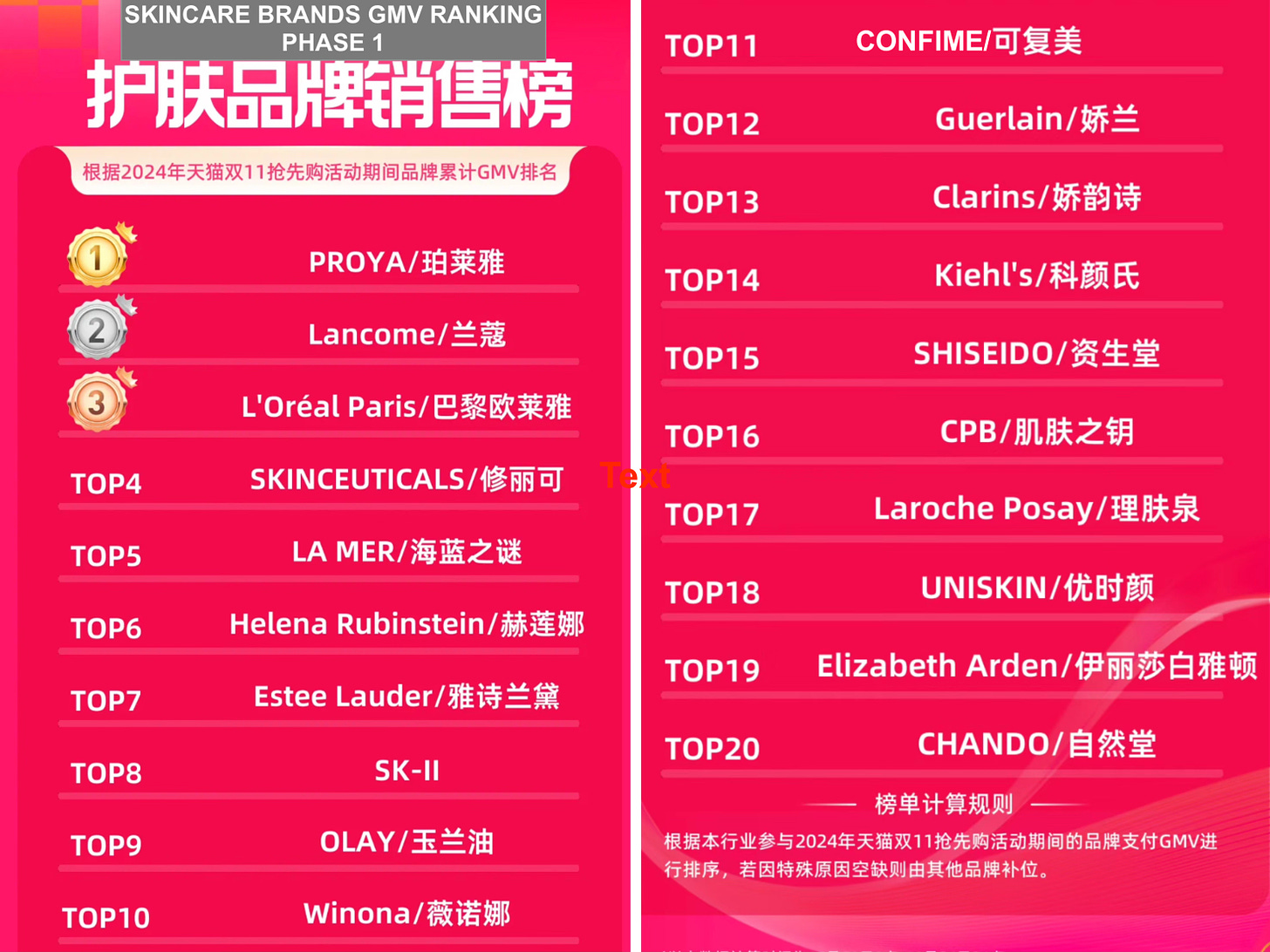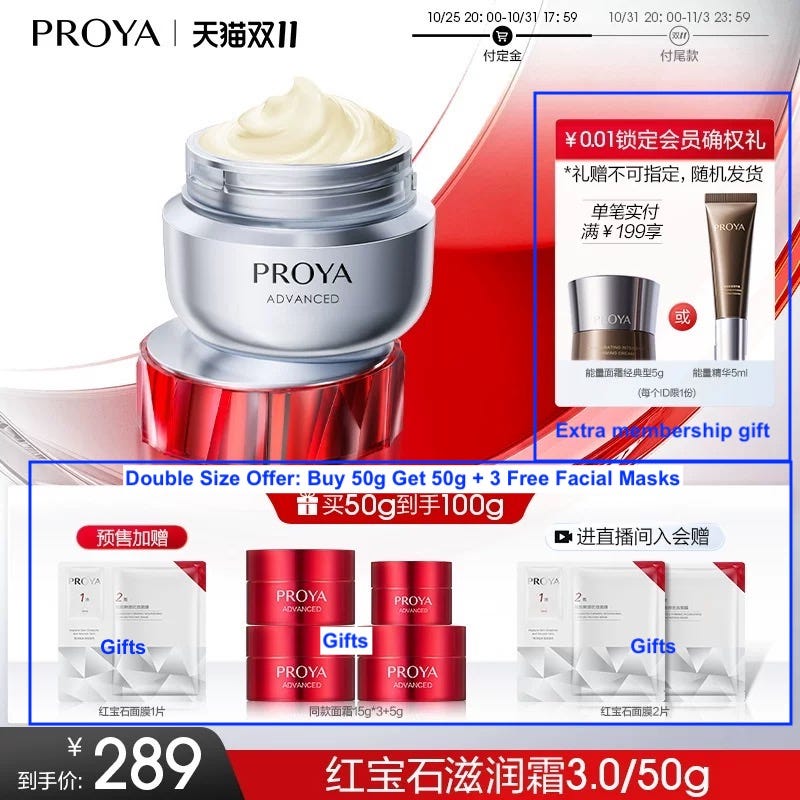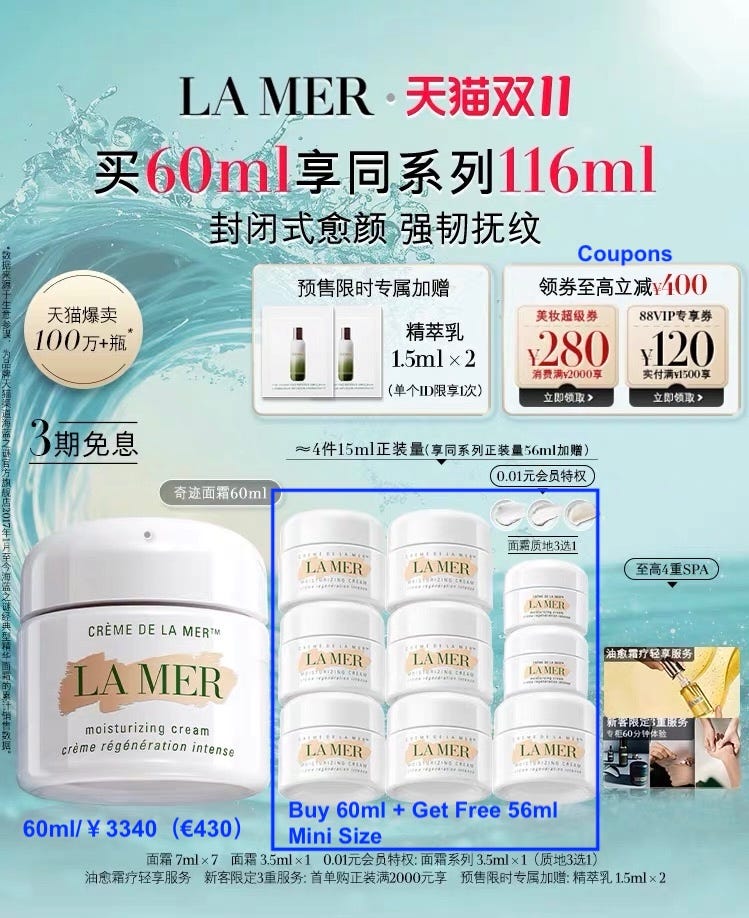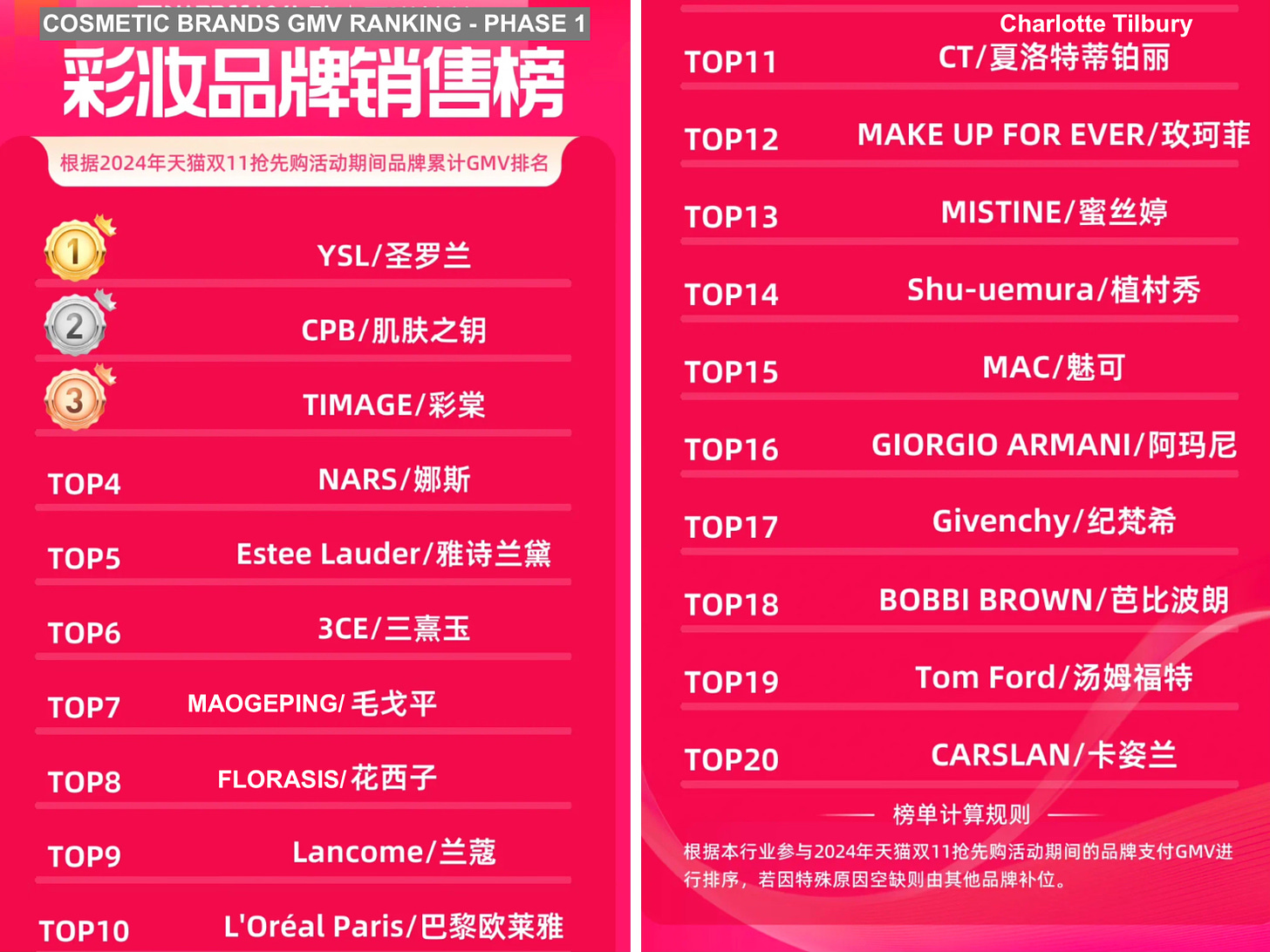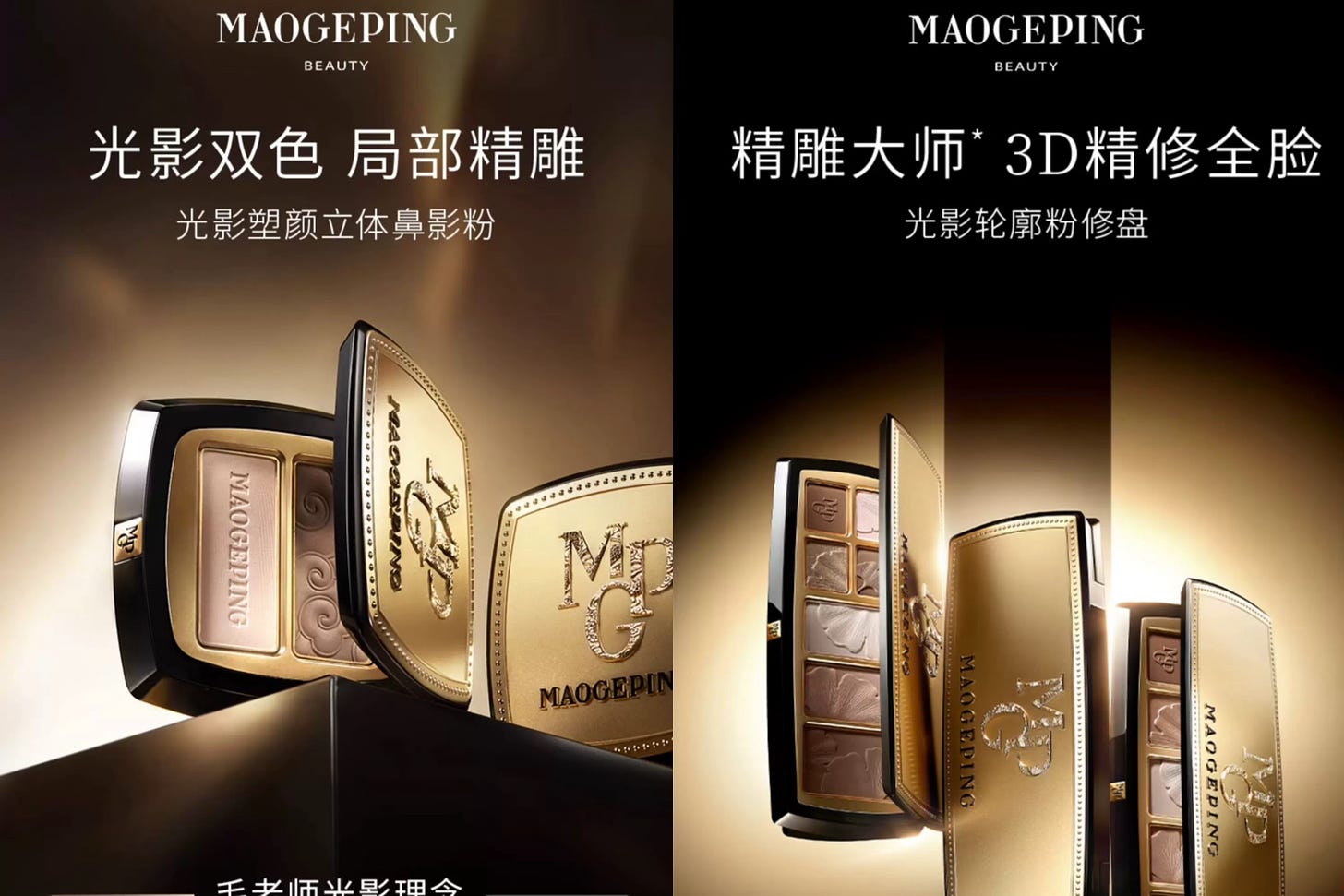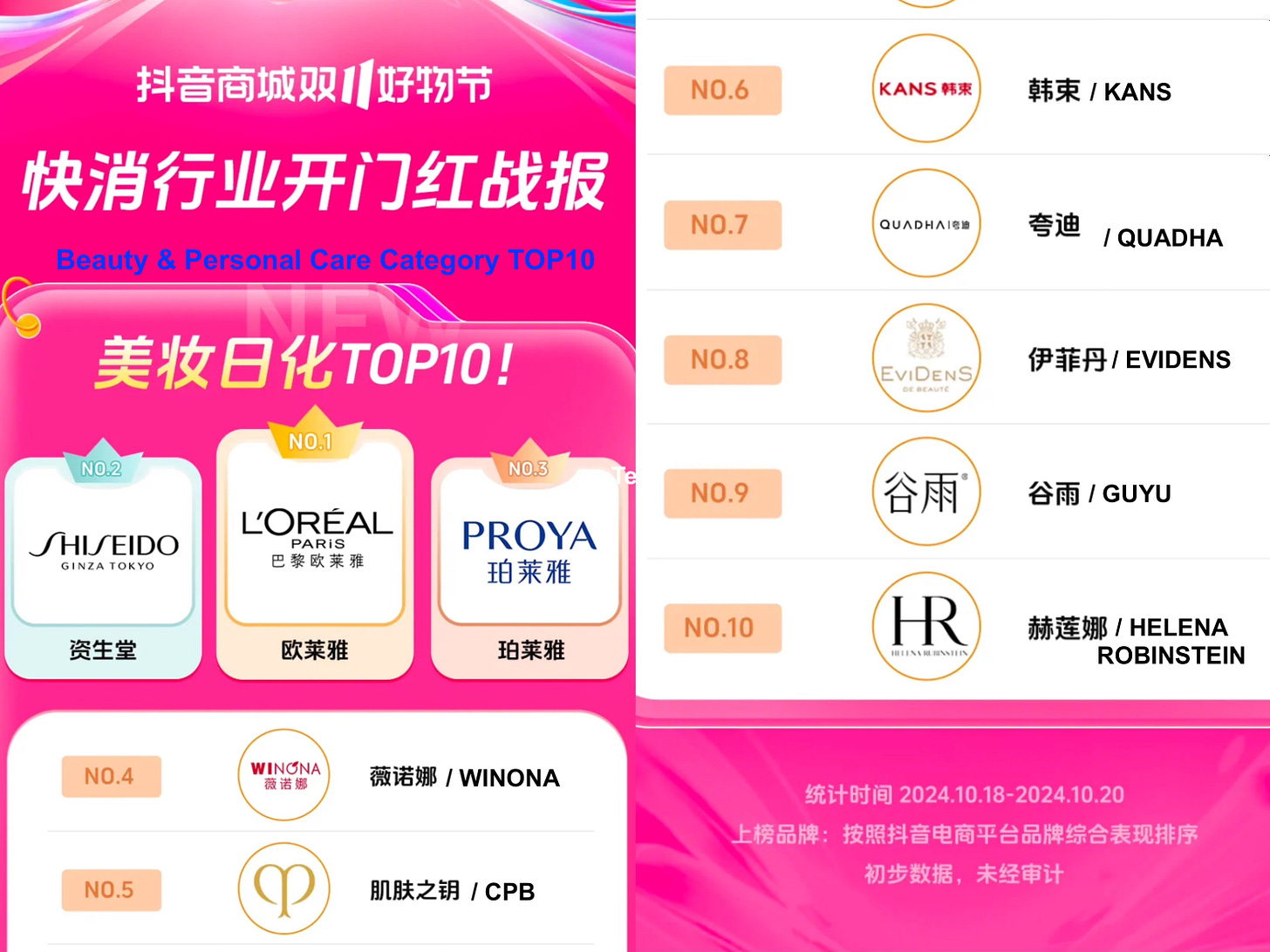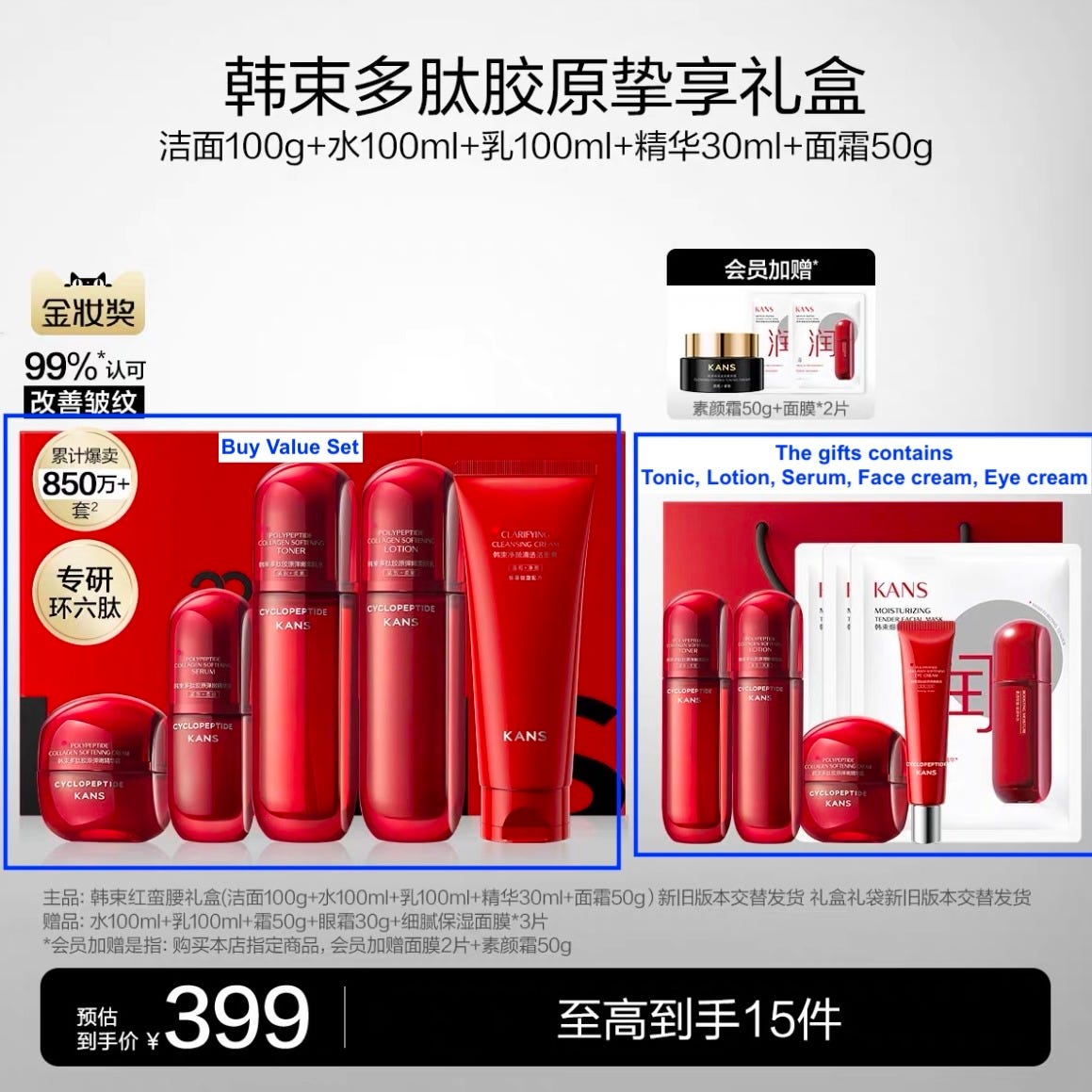2024 Double 11 Beauty Battle Early Phase Report
The Unprecedented Long E-commerce War and Who's Winning the Crown?
At a Glance: The Early-Bird E-commerce War
Welcome to China's biggest annual shopping extravaganza 'Double 11' - imagine Black Friday, but in a digital-first format. Born digital in China's e-commerce-savvy market, Double 11 is orchestrated by all-category e-commerce giants with complex promotion mechanics and, most distinctively, powered by live streamers who can generate billions in sales by turning shopping into entertainment.
As platforms compete and brands push for stronger year-end sales during tough economic times, this year's Double 11 has evolved into the longest shopping festival in its history. Major platforms launched unprecedentedly early - Douyin (TikTok China) kicked off on October 8th, followed by Tmall and JD on October 14th, with other giants like Pinduoduo (Temu China), Kuaishou, and RED (Xiaohongshu) all starting 2-10 days ahead of their usual schedule.
Take TMall as an example, it splits Double 11 into two main phases - Phase 1 runs from October 14-24 with pre-sale and payment periods, while Phase 2 spans from October 31 to November 11. Other shopping platforms have their own promotional approaches, with varying dates.
This extended timeline raises a critical question: Will this ambitious early-bird strategy successfully ignite consumer spending, or simply exhaust shopper attention? Let's dive into Phase 1 ranking from Tmall and Douyin to explore how beauty brands and their live streaming partners are competing in this bustling e-commerce carnival.
1. TMall: Separate Skincare & Makeup Rankings
(Data collected from October 21-24, 2024)
1.1 Skincare Showdown: TOP20 Analysis
A. The Victory Podium
In this first round of skincare brands battles, PROYA, Lancôme, and L'Oréal Paris claimed the champion spots in Tmall's beauty category GMV.
B. Battle Highlights
PROYA Keeps the Crown: China's "national beauty pride" proves its reign isn't just luck - it's strategy! Topping Tmall's beauty sales for the second year running, PROYA's star products stole the show. Their Wrinkles and Firming Cream 3.0(nicknamed “Ruby Cream”) charmed 300,000+ pre-orders, while three other champions, Elastic Brightening Youth Essence Mask 2.0 (双抗精华面霜), Original Repair Cream 2.0 (源力面霜), and Elastic Brightening Youth Essence Cream (双抗精华面霜), each crossed the 100,000 mark.
Global Brands vs Local Challengers: While international brands hold 15 out of 20 spots in the ranking, they're facing growth challenges amid China's economic slowdown. In contrast, strong local players like PROYA have achieved counter-trend growth, reaching the top position by taking market share from international brands in a non-expanding market.
Luxury Brands Level Up: High-end skincare is climbing steadily - During Double 11's first sales window, YoY data (Oct 21-24, 2024 vs Oct 31-Nov 3, 2023) - La Mer rose from 7th to 5th, while Helena Rubinstein advanced from 9th to 6th.1
Domestic Brands' Story: A stagnant year for Chinese brands - only 5 made the TOP20, same as last year. Rising star UNISKIN(优时颜) impressed everyone by reaching 7th place in pre-sales, but most domestic brands showed a "strong start, weak finish" pattern. CONFIME(可复美) dropped from 4th to 11th, while OSM欧诗漫 disappeared from the list entirely during main sales.
Worth noting: Last year's leading high-tech beauty device brands AMIRO (觅光) and FLOSSOM (花至) have dropped off the TOP20. This decline reflects both shifting consumer interests and the impact of new industry regulations on the home-use beauty device market.
1.2 The Makeup Arena: TOP20 Breakdown
A. The Victory Podium
In the make-up arena, YSL clinched gold, CPB claimed silver, and China's TIMAGE secured bronze. A slight reshuffle from 2023 - while YSL kept its crown, CPB advanced to second place, causing TIMAGE and NARS to each move down a spot.
TIMAGE, a brand under the PRAYA Group, shows the group's strong presence in the Chinese beauty market.
B. Battle Highlights
Premium Beauty Dominance: High-end brands are tightening their grip on the TOP20 - with a whopping 14 prestige players in the lineup! The usual suspects continue to rule the chart: YSL, NARS, Estée Lauder, Lancôme, Armani, Givenchy, Bobbi Brown, and MAOGEPING among others. Here's the plot twist: luxury newcomer Tom Ford and Thailand's budget-friendly Mistine have stepped into the spotlight, taking the places of former affordable Chinese favorites Flower Knows (花知晓) and Into You.
Global Brands Lead the Dance: International brands dominated with a whopping 16 spots to domestic brands' 4. After their golden era, Chinese makeup brands seem to be catching their breath. Former stars Flower Knows and Into You exited the TOP20. Florasis (花西子) moved up slightly from 9th to 8th, but still hasn't recovered from its last year's 79-yuan eyebrow pencil controversy - a far cry from its champion position in 2022.
MAOGEPING's Power Move: Here's a plot twist - amid the international brand parade, Chinese premium brand MAOGEPING jumped from 11th to 7th place,showing strong statement of Chinese brands in the premium segment.
For those who might not have heard of this brand, MAOGEPING (毛戈平) is a high-end professional makeup brand established in 2000 by Mao Geping, one of China's most renowned makeup artists since the early 1990s. The brand is particularly known for its sculpting and contouring expertise incarnated by founder’s make-up philosophy, combining traditional Chinese theatrical aesthetics with modern cosmetics, making it China's equivalent to MAC Cosmetics in professional reputation.
2. Douyin : Combined Beauty and Personal Care Ranking
(Data collected from October 18th - October 20th)
A. The Victory Podium
In beauty and personal care category, L'Oréal Paris took the crown on Douyin, with Shiseido and PROYA completing the podium. The top two champions each broke the 100-million-yuan barrier (that's 13 million euros!)
B. Battle Highlights
The Late-Game Comeback: On Douyin's e-commerce battlefield, it's not just about explosive pre-sale power - endurance matters just as much. While domestic brands dominated the pre-sale phase with 8 out of 10 spots, international players proved their staying power, bouncing back to claim 5 positions during the end of phase 1, highlighting the need for better-paced promotional strategies beyond just explosive pre-sale campaigns.
Same Brands, Different Stories: Here's where it gets interesting - the same brands played completely different games on Tmall and Douyin. Take Shiseido: 15th on Tmall but silver medalist on Douyin! Meanwhile, KANS, QUADHA, EVE LOM, and GuYu missed Tmall's TOP20 but shone bright on Douyin. The final score? A 5:5 domestic-international split on Douyin versus Tmall's 3:7.
KANS's Triple-Digit Dance: Speaking of impressive runs - KANS is having quite the year! They've topped Douyin's charts for 14 straight months since August 2023. Even better? Their cross-platform sales soared 222.8% in early 2024, making them the only TOP20 beauty brand hitting triple-digit growth. Now that's what we call momentum!2
KANS (韩束) - a Chinese beauty brand established in 2003 under Chicmax Group, a leading beauty company in China. As a masstige brand, KANS offers science-backed skincare at accessible price points. The brand hit a home run during last year's Singles' Day with a counter-intuitive strategy - while most brands focused on pushing single star products, KANS successfully bundled their hero items with complementary products from the same line. Their success was amplified by viral Douyin drama videos, making this bundle strategy a widely copied playbook in 2024.
3. Are Super-Influencers Still Effective?
In China's vibrant e-commerce landscape, the Double 11 phenomenon extends far beyond e-commerce platforms and brands, with influencers wielding significant influence across all tiers. Super-influencers, commanding audiences in the millions, traditionally dominate this space. However, a string of successive controversies - Austin's 79-yuan eyebrow pencil incident, XiaoYangGe's counterfeit mooncake scandal, and LuoYuWang's olive-free olive oil controversy - have cast shadows over the livestream shopping format, prompting consumers to question its credibility. This raises an intriguing question: Have super-influencers lost their touch?
Examining super-influencers' Phase 1 performance this year, the "ineffectiveness" narrative appears shaky, particularly for Austin Li(李佳琦). Having weathered last year's eyebrow pencil controversy, Austin has steadily regained its footing. His September appearance on the hit show 'Call Me By Fire' was perfectly timed - winning back public favor and proving he's still the undisputed king of livestream sales.
In this livestream clip, Austin and his assistant announced a ¥500 million coupon giveaway, funded by their company. These digital red envelopes will be released at specific times during the stream - viewers just need to click fast to grab them.
When TMall pre-sales launched on October 14th, Austin's stream showcased over 500 products in total spanning makeup, skincare, food, and beyond. During this session, 21 brands surpassed ¥100 million GMV, marking a 16.7% increase from the previous year. Premium brands including Confime(可复美), Valentino, L'Oréal Paris, and Clarins saw their inventory depleted almost immediately. As main sales started on October 21st at 8 PM, Austin's livestreaming room achieved ¥100 million GMV within just 5 minutes. By 9 PM, visitor numbers had surged 30% year-over-year, with numerous domestic brands selling out completely. The first day of main sales saw remarkable results in Austin's livestream session - Confime reported over 1 million units sold, while L'Oréal Paris REVITALIFT Pro-xylane ampule Mask exceeded 500,000 units.
Fellow TMall livestreaming titans including Bee’s Surprise, Mushroom is coming, Lie'er Baby, and Chen Jie KIKI likewise reached the 100 million yuan GMV milestone within 5 minutes of launching their October 21st streams.
Beyond the TMall ecosystem, Kuaishou's star influencer Xinba(辛巴) demonstrated formidable sales prowess (Kuaishou/快手,one of China's leading short-video platforms). During his Double 11 marathon stream on October 19th, running from 10 AM to midnight with just a 30-minute respite, generated an impressive 6.4 billion yuan (833 million euros) in GMV. The Whoo's gift set alone generated 1.4 billion yuan in sales, offered at ¥1,360 versus its retail price of ¥2,080.3
These results reaffirm super-influencers' enduring consumer appeal and their strategic importance for brands during major shopping events. In China's current economic slowdown and consumption recalibration, super-influencers may represent brands' most potent asset in the fierce battle for market position. Yet their outsized influence carries proportional risk - recent controversies involving both top-tier and mid-tier influencers illustrate how brands can suffer by association. Brands must therefore carefully weigh influencers' controversy potential while implementing robust content controls to mitigate unexpected setbacks.
Key Take-aways:
While international brands dominate with 15 positions in Tmall's TOP20 rankings, domestic champions show strategic wins: PROYA leads skincare sales, MAOGEPING advances in premium cosmetic segments, and domestic brands perform strongly on platforms like Douyin. Western brands need to stay vigilant and creative as market challenges intensify in China.
High-end makeup brands dominate the market, with 14 prestige brands including YSL, NARS, and Estée Lauder occupying 70% of TMall TOP20 positions, while mid-range affordable makeup brands hold only 6 positions, reflecting Chinese consumers' preference for premium makeup.
Super-influencers remain crucial, with top streamers like Austin Li demonstrating powerful sales ability, helping 21 brands exceed 100 million yuan GMV in a single stream. However, brands need more careful evaluation of influencer controversy risks and stronger content control.
E-commerce platforms show differentiated development, with brands performing differently across platforms - international brands have a much higher presence on Tmall than on Douyin, highlighting the need for brands to leverage different e-commerce platforms in their integrated digital strategies.




